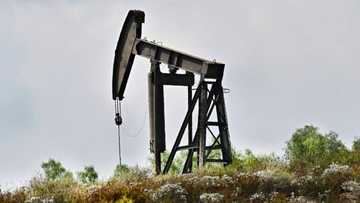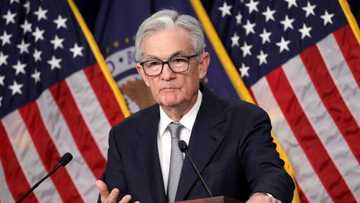Argentina inflation hits new high before presidential vote

Source: AFP
PAY ATTENTION: Watch our new ranking show on YouTube now! Click here or search BIAS TEST on Briefly TV channel.
Argentina's annual inflation rate has hit 143 percent, the statistics agency announced Monday, just days before a presidential election in which the dire state of the economy will be a deciding factor.
Argentines go to the polls on Sunday for a nail-biting showdown between Economy Minister Sergio Massa and political outsider and self-described "anarcho-capitalist" Javier Milei.
The two men represent wildly different options for the future of Latin America's third-largest economy. While Milei has held a slight lead in the polls, analysts say the race is too tight to predict.
Massa has overseen the slide into triple-digit inflation that has left many people struggling to survive.
However, he scored the most votes in last month's first-round election, and Argentine media called him the winner of a final debate with his rival on Sunday night.
The libertarian Milei has vowed to "dynamite" the central bank -- meaning shut it down -- and dollarize the economy, firing up voters tired of decades of decline in their living standards.
PAY ATTENTION: Follow Briefly News on Twitter and never miss the hottest topics! Find us at @brieflyza!
Ahead of the run-off he has sought to tone down his fiery image to appeal to more moderate voters, notably ditching the live chainsaw he wielded at rallies as a symbol of his plan to slash state spending.
The rise of the political outsider, who rages against the establishment, is seen as a symptom of voter disgust with decades of recurrent fiscal crises marked by debt, financial mismanagement, and a volatile currency.
The national statistics agency reported that inflation over the past 12 months had risen 142.7 percent, up from 138 percent in September.
"Every day I go to buy something and every day I see the prices rising. You go to buy something to make dinner and you have no idea how much you will spend," said David Garcia, 43, a food deliveryman.
'Cancer of inflation'
Nevertheless, monthly inflation slowed to 8.3 percent in October, down from 12.7 percent in September. Consumer prices have risen 120 percent since January this year.
"We are going to dollarize. We are going to close the central bank. We are going to end the cancer of inflation," Milei said during the final debate.
Massa peppered his rival with questions about his controversial policy plans, many of which he has watered down in recent weeks.
In a post-debate interview on Monday with Radio Mitre, Milei accused Massa of planting "coughers" on his side of the audience in an effort to distract him, and of trying to depict him as "emotionally unstable."
During the debate, Milei doubled down on his accusation that Massa represents a "corrupt, parasitic, thieving political class" that has driven the country into its current misery.
Nicolas Saldias, a senior analyst with the Economist Intelligence Unit, told AFP that regardless of the debate, "reality bites... and I think that this election is still unfavorable to Massa fundamentally."
"The economy is really, really suffering."
Inflation soared after the strictly-controlled peso was devalued by 20 percent in August, but since then Massa has kept the rate steady -- all while the parallel "blue dollar" rate has soared.
"It's a total fiction. And to maintain it is extremely expensive," said Saldias of the official peso rate of 365 to the US dollar.
In recent weeks, Massa temporarily suspended taxes on already heavily-subsidized fuels to limit price increases.
Argentines are no stranger to inflation woes, with several periods of hyperinflation in the late eighties and early nineties, when it reached as much as 3,000 percent.
PAY ATTENTION: Сheck out news that is picked exactly for YOU ➡️ click on “Recommended for you” and enjoy!
Source: AFP




